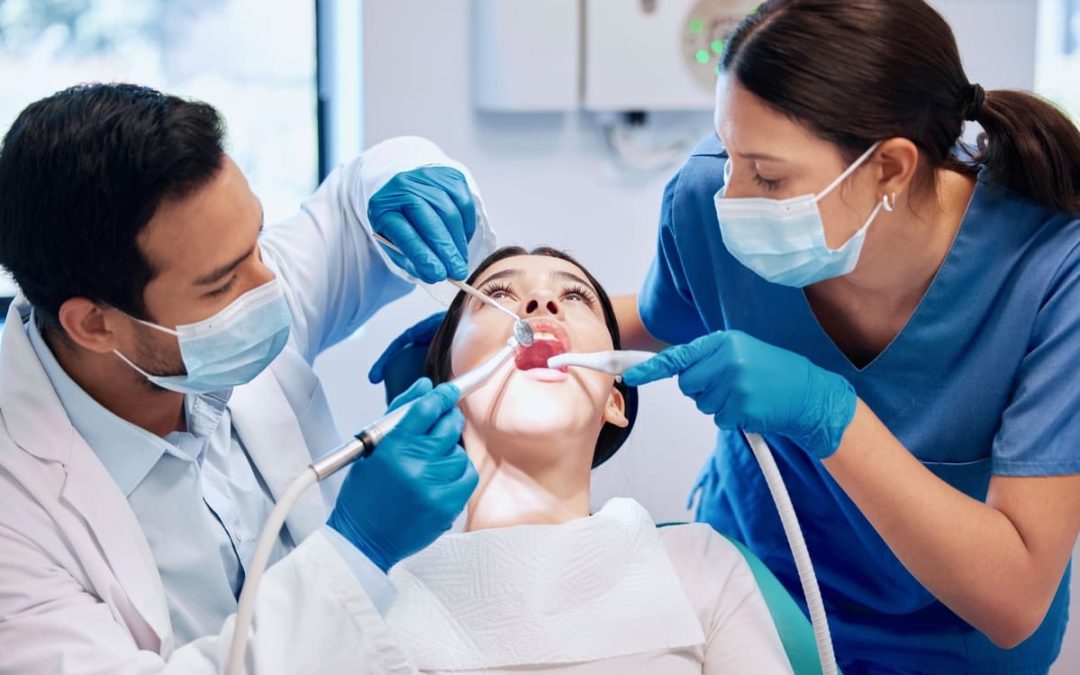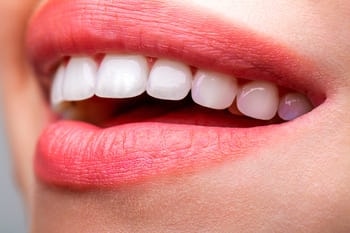Maintaining good oral health is an essential aspect of overall well-being, and one key component to achieving this is regular dental cleanings. But how often should I get a dental cleaning? This question is common among Australians striving to prevent dental issues such as tooth decay and gum disease. In this blog, we will explore the recommended frequency for dental cleanings, the benefits of professional teeth cleaning, and how these practices contribute to maintaining good oral health.
The Importance of Regular Dental Cleanings
Regular dental cleanings, or professional teeth cleaning, are pivotal in preventing dental problems. Even with diligent oral hygiene practices like regular brushing and flossing, plaque and tartar can build up over time. A dental hygienist uses specialized tools to remove this buildup, ensuring your teeth and gums remain healthy.
Preventing Tooth Decay and Gum Disease
One primary reason to schedule regular dental cleanings is to prevent tooth decay. Plaque, a sticky film of bacteria, can produce acids that erode tooth enamel, leading to cavities. Professional teeth cleaning removes plaque and tartar, reducing the risk of cavities and ensuring your teeth remain healthy.
Gum disease, another common concern, can develop when plaque and tartar accumulate along the gumline. This can cause inflammation, bleeding gums, and, in severe cases, periodontal disease. Regular dental cleanings help prevent the onset of gum disease by keeping the teeth and gums free from harmful bacteria.
Enhancing Oral Health and Overall Health
Maintaining good oral health extends beyond your mouth. Poor dental hygiene has been linked to various systemic conditions, including heart disease, diabetes, and respiratory infections. By scheduling regular dental cleanings, you protect your teeth and gums and contribute to your overall health.
Recommended Frequency for Dental Cleanings
The Australian Dental Association (ADA) guidelines how often individuals should get their teeth cleaned. While the general recommendation is every six months, the ideal frequency can vary based on individual oral health needs.
Every Six Months
Most people maintain excellent oral health by having their teeth cleaned every six months. This routine schedule helps prevent the buildup of plaque and tartar, reducing the risk of tooth decay and gum disease. Regular teeth cleanings every six months also allow dental professionals to monitor oral health and address any issues promptly.
More Frequent Cleanings: Every Three to Four Months
Some individuals may require more frequent dental cleanings every three to four months. This is often recommended for those with a higher risk of dental problems, including smokers, individuals with a history of periodontal disease, or those with a propensity for tartar buildup. More frequent cleanings help manage these risks effectively, addressing dental issues before they escalate.
Annual Cleanings
In some cases, individuals with excellent oral hygiene and a low risk of dental problems might opt for annual dental cleanings. However, it is essential to consult with your dental hygienist or dentist to determine if this frequency is appropriate for your specific needs. Annual cleanings might suit those who maintain rigorous oral hygiene practices and have minimal risk factors for dental issues.
Factors Influencing the Frequency of Dental Cleanings
Several factors can influence how often you should get a dental cleaning. Understanding these can help you make informed decisions about your oral health care.
Oral Hygiene Practices
Your daily oral hygiene routine plays a significant role in determining the frequency of dental cleanings. Regular brushing, flossing, and mouthwash can reduce plaque buildup, potentially allowing for less frequent cleanings. However, even with excellent oral hygiene, professional teeth cleaning remains essential for removing tartar, which cannot be eliminated through brushing alone.
Lifestyle Choices
Lifestyle choices, such as smoking and diet, can impact your oral health. Smoking increases the risk of gum disease and tooth decay, often necessitating more frequent dental cleanings. Similarly, a diet high in sugary or acidic foods can accelerate tooth decay and enamel erosion, requiring more regular professional cleanings to maintain dental health.
Medical Conditions
Certain medical conditions, such as diabetes, can affect oral health by increasing the risk of gum disease and other dental problems. Individuals with such conditions may need more frequent dental cleanings to manage their oral health effectively.
Age and Dental History
Age and your dental history also play a role in determining the appropriate frequency for dental cleanings. Older adults and those with a history of dental issues may benefit from more frequent cleanings to prevent the recurrence of problems like periodontal disease or tooth decay.
The Dental Cleaning Process
Understanding what happens during a dental cleaning session can help alleviate apprehensions and highlight the importance of these visits.
Examination and Assessment
The dental hygienist examines your teeth and gums during a dental cleaning session. This assessment checks for signs of tooth decay, gum disease, and other oral health issues. Any concerns identified during the examination can be addressed promptly, ensuring minor issues do not escalate into more significant problems.
Plaque and Tartar Removal
The primary focus of dental cleaning is to remove plaque and tartar buildup. Using specialized tools, the dental hygienist meticulously cleans the surfaces of your teeth and along the gumline. This process removes stubborn tartar that regular brushing and flossing cannot eliminate.
Polishing and Flossing
After plaque and tartar removal, your teeth are polished to remove any remaining stains and to smooth the tooth surfaces, making it harder for plaque to adhere in the future. Flossing is also performed to clean all areas between the teeth thoroughly.
Fluoride Treatment
A fluoride treatment may sometimes be applied to strengthen tooth enamel and prevent cavities. This treatment is especially beneficial for individuals at higher risk of tooth decay.
Dental Compressor and Equipment
Dental compressors play a crucial role in the dental cleaning process. They power the tools and equipment dental professionals use, ensuring that procedures like scaling and polishing are performed efficiently and effectively. Maintaining dental compressors is essential for providing high-quality dental care, as they ensure the consistent operation of dental tools during cleanings and other treatments.
Benefits of Professional Teeth Cleaning
Professional teeth cleaning offers numerous benefits beyond maintaining a bright smile. Here are some of the key advantages:
Early Detection of Dental Problems
Regular dental cleanings allow dental professionals to detect potential issues early on. Early detection of cavities, gum disease, and other dental problems means that they can be treated before they become severe, saving you from more extensive and costly treatments in the future.
Prevention of Bad Breath
Bad breath, or halitosis, can result from poor oral hygiene, gum disease, or other dental issues. Professional teeth cleaning removes plaque and tartar, reducing the bacteria that cause bad breath and ensuring your breath stays fresh.
Improved Aesthetic Appearance
Regular cleanings help maintain the natural whiteness of your teeth by removing surface stains caused by foods, beverages, and smoking. This not only enhances your smile but also boosts your confidence and self-esteem.
Enhanced Overall Health
As mentioned, maintaining good oral health is linked to better overall health. Regular dental cleanings reduce the risk of developing serious health conditions related to poor oral hygiene, such as heart disease and diabetes, contributing to overall well-being.
Cost-Effective Preventive Care
Investing in regular dental cleanings is a cost-effective way to prevent more serious and expensive dental treatments. By addressing dental issues early, you can avoid the high costs associated with procedures like fillings, root canals, and periodontal therapy.
Conclusion
Understanding how often I should get a dental cleaning is fundamental to maintaining excellent oral health and preventing dental problems like tooth decay and gum disease. While the general recommendation is every six months, individual needs may vary based on factors such as oral hygiene practices, lifestyle choices, medical conditions, and dental history. Regular dental cleanings and diligent oral hygiene at home contribute significantly to maintaining healthy teeth and gums, enhancing overall health, and ensuring a confident smile.
Investing in professional teeth cleaning is a proactive step towards preventing dental issues, saving you from more extensive and costly treatments in the future. By following the guidelines the Australian Dental Association sets and consulting with your dental professionals, you can establish a dental care routine that best suits your needs.
Call us today at (02) 8880 9257 to schedule your next dental cleaning session and take the next step towards maintaining your oral health and overall well-being.
References
https://www.sciencedirect.com/topics/medicine-and-dentistry/teeth-cleaning#:~:text=Evaluation%20every%206%20months%20is,4%20months%20would%20be%20appropriate.
https://www.healthline.com/health/dental-and-oral-health/how-often-should-you-get-your-teeth-cleaned
https://my.clevelandclinic.org/health/treatments/11187-dental-check-up#:~:text=You%20should%20schedule%20routine%20cleanings,to%20cavities%20or%20gum%20disease.





